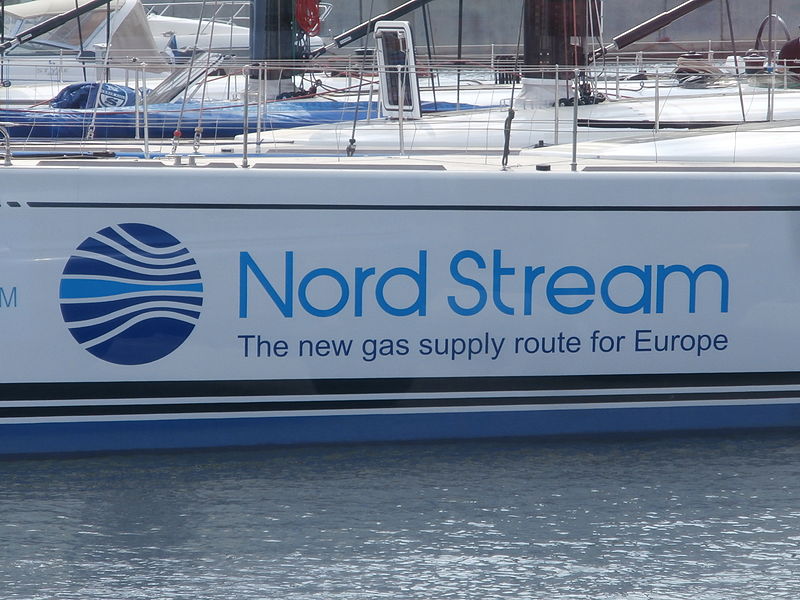
The Nord Stream II pipeline is a natural gas delivery system to bring Russia gas to the German shore under the Baltic Sea. It is scheduled to be completed by the end of this year. U.S. President Trump has mocked the Germans for constructing the pipeline, saying it will enhance German dependence on Russian gas, all the while sanctioning Russia for its malign behavior worldwide.
Germany pays little for its own defense and is the strongest economy in Europe.
Today, the European Parliament issued a report essentially agreeing with POTUS.
“Russia and the EU will remain key economic partners in the foreseeable future, but Nord Stream 2 reinforces EU dependency on Russian gas supplies, threatens the EU internal market and is not in line with EU energy policy, and therefore needs to be stopped,” the report says, reported Russian state news agency TASS.
“The EU’s dependency on Russian gas supplies has increased since 2015,” according to the report.
“The deepening of EU integration and coherence between its internal and external policies is the key to a more coherent, effective and successful EU external and security policy, including vis-a-vis Russia.”
It remains to be seen if this resolution has any teeth or while impact German behavior in any way. Berlin says it considers Nord Stream II to be a ‘commercial project’.


4 comments
I think this is more an effort to keep Germany in energy dependence from the Western providers. As long as there is a shutoff valve on the German side, why is there a problem? The Germans can then buy from whoever they want. The more suppliers you have, the better you are off. All they have to do is build sufficient storage capacity to have a reserve that is big enough to keep them warm until the gas from the US or Saudi Arabia arrives.
Agreed that Germans can buy from whomever they like. And yes…they can shut off the tap…but when RUSSIA shuts off the tap supplying Germany, the ensuing emergency will become everyone else’s problem. Especially in order to prevent chaos caused by fuel shortages. Its actually a lot like Germany’s military position. THEY don’t pay, but everyone else will have little choice but to help them if they get in trouble…because if THEY fall, the rest of Europe can be next. It’s irresponsible if they actually WANT to be Western allies.
Germany has become Europe’s grasshopper to the rest of the globe’s ants.
Everybody seems to complain that Russia under Putin is aggressive, threatening, and has potential to occupy NATO nations, especially after taking over Crimea and sponsoring separatist movement in South East Ukraine. Also the Georgian/Russian war, but rather than actually trying to separate themselves from Russian dependency, the Germans under Angela Merkel are cozying up to the Russians and becoming more dependent upon them than every. Meanwhile Russia uses the money from selling oil to modernize its Strategic Missile Forces, has developed short range missiles to threaten Europe and is modernizing its naval, especially submarine, forces, and is in the midst of upgrading artillery and armor forces.
The Germans from their actions almost seem to be allied to Russia rather than to NATO and it’s European neighbors.
This seems to be a terrible vulnerability to Russian aggression. It creates an unstable situation which may topple NATO, which depends on mutual interdependence, with mutual defense. It seems Germany is strengthening the Russian economy while taking advantage of EU and NATO partners through its economic measures, which cause austerity and hardship among its EU partners, and military dependency on its NATO partners. The Germans appear to be enriching themselves at their EU and NATO partners expense.
Can either or both the EU and NATO hold together if Germany doesn’t do it’s share to uphold both agreements. Both agreements depend on mutual interaction, both economically and militarily. If a country isn’t treating it’s partners fairly, the partnership isn’t likely to withstand economic or military stress.
It’s important to note that former German chancellor Gerhard Schroeder is working for the Russian gas company Rosneft and is the driving force behind this pipeline deal.
The Russians have a history of turning off gas to countries which don’t “toe the line” – hence countries such as Poland deciding to reduce their dependence on Russian and purchase natural gas from the United States and Qatar.